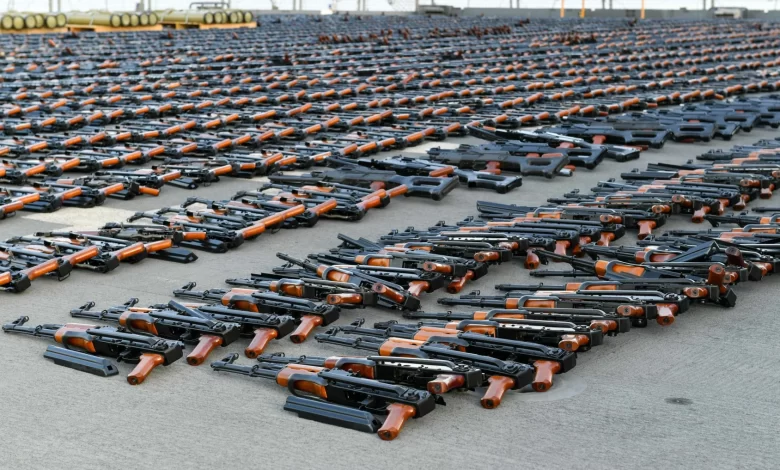CNN: Russia Yields to US and Saudi Pressure Regarding the Houthis

Yemen Monitor/Agencies
Russia made a “last-minute” decision to back down from supplying the Houthi group in Yemen with missiles and military equipment in late July, following “a wave of behind-the-scenes efforts” by both the US and Saudi Arabia, according to CNN, citing informed sources.
Sources confirmed to the network that “the Saudis… warned Russia against arming one of their biggest enemies upon learning of the plans.”
Two sources told CNN that the US, which has been involved in numerous diplomatic efforts to prevent the Russians from arming the Iranian-backed rebels, separately asked the Saudis to help convince Moscow not to pursue the efforts.
The US-Saudi discussions and the impending arms transfer had not been previously reported, according to the network, which stated that the Saudi embassy in Washington declined its request for comment, and the Kremlin also did not respond to its request.
In January, the US designated the Houthis as a global terrorist organization, after months of missile and drone attacks launched by the Houthis against commercial shipping in the Red Sea, which resulted in the deaths of many sailors and disrupted global trade.
Despite several rounds of sanctions and US military attacks on the Houthis’ weapons infrastructure, the rebels continued to attack commercial ships in the vital waterway.
A senior US official declined to discuss the details of Russia’s plans to arm the Houthis. However, he told CNN that the US considers any attempt by a third party to bolster arms supplies to the Houthis to be “inconsistent with the goals we seek to achieve” when it comes to reaching a lasting peaceful settlement in Yemen between the Houthis and the Saudis, and helping to stabilize the region.
He added that the Houthis’ involvement in this type of arms deal “would prove to us their lack of commitment” to peace talks, noting that “they (the Houthis) seem to be moving away from a commitment to a negotiated peace in Yemen at the moment.”
“Russian Ships” in Yemen
“CNN noted that it was unclear whether Saudi efforts were what prompted Russia to abandon its plan to arm the Houthis, or if it was part of the reasons that led Russian President Vladimir Putin to change his mind.
Officials told the network that the Russians considered arming and advising the Houthis a way to retaliate against US President Joe Biden’s administration for its decision to allow Ukraine to strike Russian territory using US-supplied weapons.”
Despite the halted arms transfer, Russia deployed military personnel to Yemen in late July to advise the Houthis for three days. US officials observed large Russian ships making unusual stops in the southern Red Sea, from which Russian crew members disembarked and boarded a Houthi boat to be transported to Yemen. While the Russians carried bags, there was nothing large enough to carry weapons or weapon components . It remains unclear whether the Russian ships were carrying the equipment that Moscow had been preparing to transfer to the Houthis before the Kremlin abandoned the plan.
In the period leading up to and during the Russian visit to Yemen, the Houthis took the unusual step of issuing a notice to mariners, warning ships of potential dangers at sea. A US official told CNN that intelligence indicated the Houthis planned to conduct live-fire exercises while hosting the Russians, but these plans also appeared to be canceled.
The Iranian-backed Yemeni rebels have opened fronts with Israel, “in support” of Palestinians in the besieged Gaza Strip.
A day after the Yemeni rebels claimed responsibility for a drone attack that killed one person in Tel Aviv in July, Israeli fighter jets raided the strategic Hodeidah port controlled by the Houthis in western Yemen, killing six people and injuring about 90 others, according to the rebels.
Since November, the Houthis have been launching missile and drone attacks on commercial ships in the Red Sea and the Arabian Sea, which they say are linked to Israel or headed to its ports. They have also launched missiles at Israeli towns, most of which have been intercepted.
It is worth noting that the killing of Hamas leader Ismail Haniyeh during a visit to the Iranian capital, Tehran, early Wednesday, which Iran accused Israel of involvement in, threatens to escalate tensions in the region. The US has announced the deployment of additional forces and its commitment to Israel’s security, while resorting to diplomatic means to de-escalate the situation.





